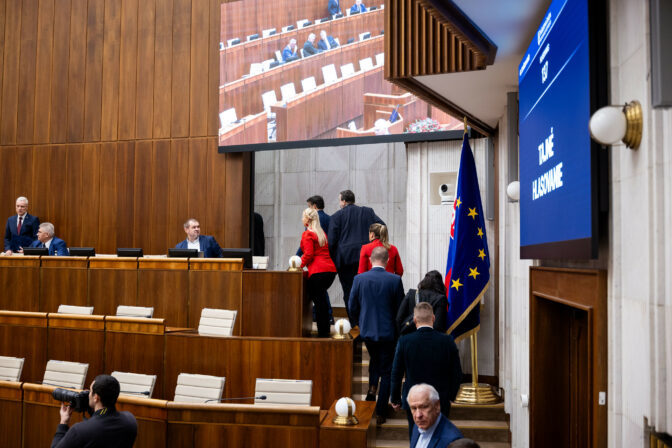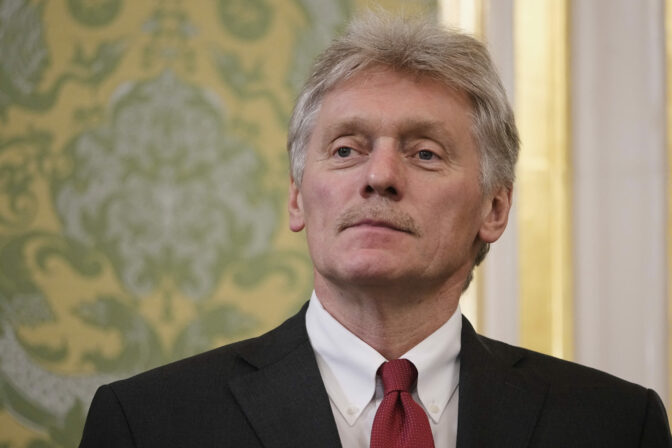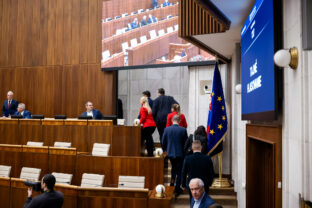BRATISLAVA, March 10, (WEBNOVINY) – Radovan Durana of the conservative think-tank the Institute of Economic and Social Studies (INESS) writes on his blog that not low social and health insurance contributions paid by the self-employed cause the headache in Slovakia but high payroll levies of employees. If the aim of the reform is a broader equalization, then payroll levies of employees should be squeezed down instead of hiking premiums paid by the self-employed. Durana points out that the self-employed pay less in premiums but also receive less from the merit-based social system. If the trade license increases their net income, then it is up to them to save for pension. The state should regularly remind them of this option but it should refrain from enforcing a stronger participation in the unsustainable and deficit-making first pillar of the pension system, he opines.
The prepared government blueprint will reduce net income of more than 800,000 individuals conducting activities on the basis of a work contract and 240,000 self-employed persons by some EUR 96 million and these funds will be allotted to employees.
Based on the proposal, private individuals with work contracts should pay 13.1 percent of their income in the social premium. “The suggested measure weakens employers, curbs the labor market flexibility and drives out some individuals with work contracts from the market,” Durana warns. As a result, employers will lose an effective tool that helped them react to unstable orders amid the crisis and give work and pay to people based on orders that were too small for one position. Durana sees a solution in a cap on annual income earned under a work contract, for instance, EUR 2,500.
Durana is of the opinion that low-income groups should be granted opportunities to increase their net income. “Work contracts are an instrument that enables low-income individuals to earn additional finances, while they are not forced by the state to commence business,” he elaborates.
Durana reasons that reclassification of individuals conducting activities on the basis of a work contract among employees will not bolster employment. “It is only a change in the form of employment. On the contrary, the proposal will hike marginal labor expenses,” he explains. Some work contracts of more than 800,000 individuals will terminate without an equivalent creation of new jobs. As Durana points out, some tradesman licenses will be suspended, too, without subsequent employment of affected individuals.
The Civic Conservative Party (OKS) will not back the proposed increase in taxes and social and health insurance premiums paid by self-employed individuals and persons conducting activities under work contracts. Party leader Peter Zajac told journalists on Thursday that the proposed tax and premium reform should be fiscally neutral, i.e., the reduction of taxes and premiums are to be compensated chiefly by savings on other public spending. “We support lowering of premiums paid by employees but not at the cost of self-employed individuals and persons conducting activities under work contracts. We cannot achieve fiscal neutrality by lowering premiums of one group and increasing them for the others. First and foremost, it is the state that should save,” Zajac asserts. This government received a mandate from people to carry out reforms. Unless it does, it cannot be labeled a reform-positive government. “For the time being, it is a government of hesitant reformers,” he concluded.
Deputy Chairman of the ruling coalition party MOST-HID Ivan Svejna also commented on the planned changes. His party will do its utmost to make the impact of the final version of the reform different from what it seems to be at the first glance. “There still is room for a compromise. I believe that the coalition partners, too, will realize the importance of the self-employed,” he told SITA. Svejna highlighted that MOST-HID has clearly presented its opinion in the debate on premiums. “MOST-HID is the one in the coalition that is pushing for a different view on the self-employed and people working under work contracts. We are striving to find a sensible compromise to accept something and push through something else. The change in the perception of the self-employed is the merit of MOST-HID. The extent of the accord yet to be achieved with our partners is open,” he highlighted.
SITA












